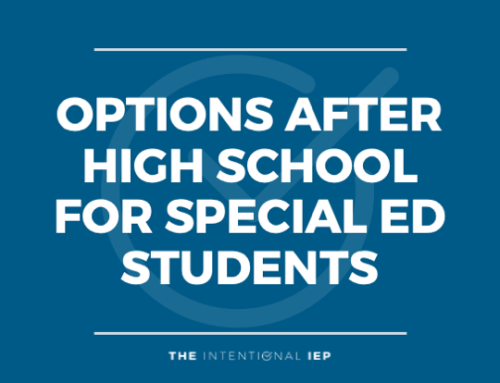Extracurricular activities in school are a big deal. It’s not just about the fun students have with their friends, it’s also about the skills they get to learn and the experiences that will help lead to future success.
But what if your child has an Individualized Education Program (IEP) or other disability? What rights do they have for extracurricular activities?
Let’s take a look at some of these questions and more!
Understanding IEPs, the IDEA, and Extracurriculars
What is an IEP?
An Individualized Education Program typically includes a statement of what the student needs in order to be educated successfully. It may also include services that need to be provided, accommodations and modifications, assessments, short-term goals for progress reports as well as long-term academic or functional goals.
The IEP team may include the student, their parents or guardians, a teacher who knows the child well, and an expert in the field of disability.
What is IDEA?
The Individuals with Disabilities Education Act (IDEA) protects children from discriminatory actions based on their disabilities by requiring that every public school district provide each qualified individual with a free, appropriate public education.
In 2004, Congress amended the IDEA to include legal coverage for extracurricular activities in school.
What are Extracurricular Activities?
Extracurricular activities are any school-sponsored or -supported activity that is not part of the regular instructional curriculum, including athletics, art clubs, music education, and student government.
What Does the IDEA Say About Extracurricular Activities?
The law requires that children with disabilities be allowed to participate in all services offered by a public school district, including extracurricular activities.
It is unlawful for public schools to exclude students from any of these programs if their parents request that they be included on the basis that they have a disability.
What Does an IEP Cover in Terms of Extracurriculars?

An IEP team can determine what type of extracurricular activities a child with disabilities should take part in and how often they participate.
The school district must provide the services that are required by law which may include any equipment or special materials needed for participation. The school district is required to provide any extracurricular activities that are appropriate for the student’s disability and may not require a “fee or charge on behalf of the parents, guardian, or pupil in order to participate therein.”
The IDEA also states that the school district has to provide extracurricular activities in general, including contact sports. The law requires that all students have access to the same educational and extracurricular opportunities, regardless of disability status or need for special education services.
- Section 300.107 addresses Nonacademic services, including extracurricular activities:
The State must ensure the following:(a) Each public agency must take steps, including the provision of supplementary aids and services determined appropriate and necessary by the child’s IEP Team, to provide nonacademic and extracurricular services and activities in the manner necessary to afford children with disabilities an equal opportunity for participation in those services and activities.(b) Nonacademic and extracurricular services and activities may include counseling services, athletics, transportation, health services, recreational activities, special interest groups or clubs sponsored by the public agency, referrals to agencies that provide assistance to individuals with disabilities, and employment of students, including both employment by the public agency and assistance in making outside employment available.
Furthermore, a school district may only use an individualized education program as justification for denying participation in other programs if the IEP specifically states that the student should not participate in these programs.
The IDEA prohibits school districts from discriminating against a child with disabilities because of their disability and requires provision for reasonable accommodation, including auxiliary aids or services to enable students to access benefits, opportunities, instruction, and extracurricular activities on an equal basis with others.
Extracurriculars and the Law
Schools are committed to providing every student with an education, but many students don’t realize that their extracurricular activities in school also have legal protections under the Individuals with Disabilities Education Act.
There is no need for children with disabilities to feel like they can’t participate because of a disability or individualized educational needs. Schools have a legal responsibility to provide them with equal access.




